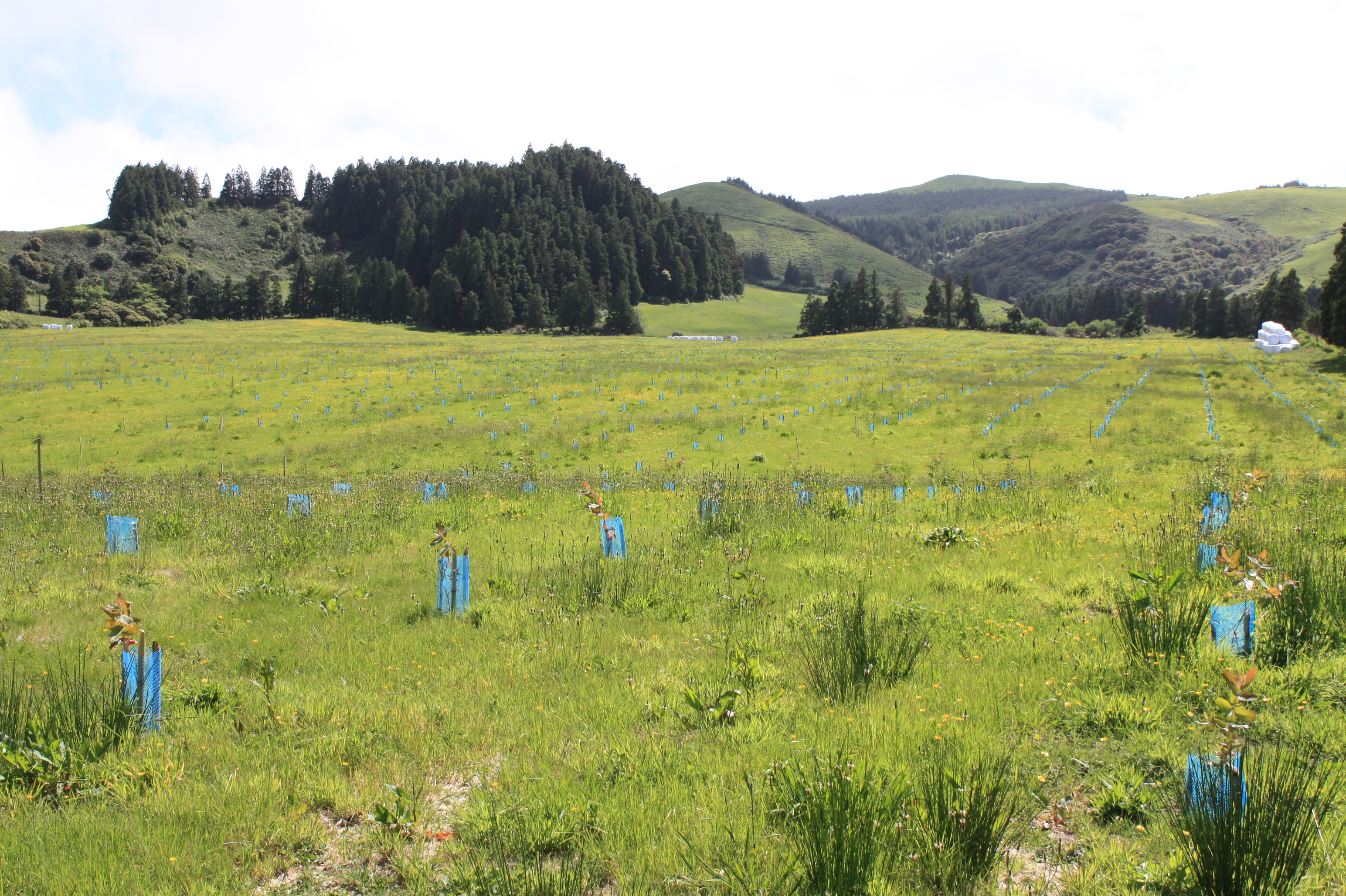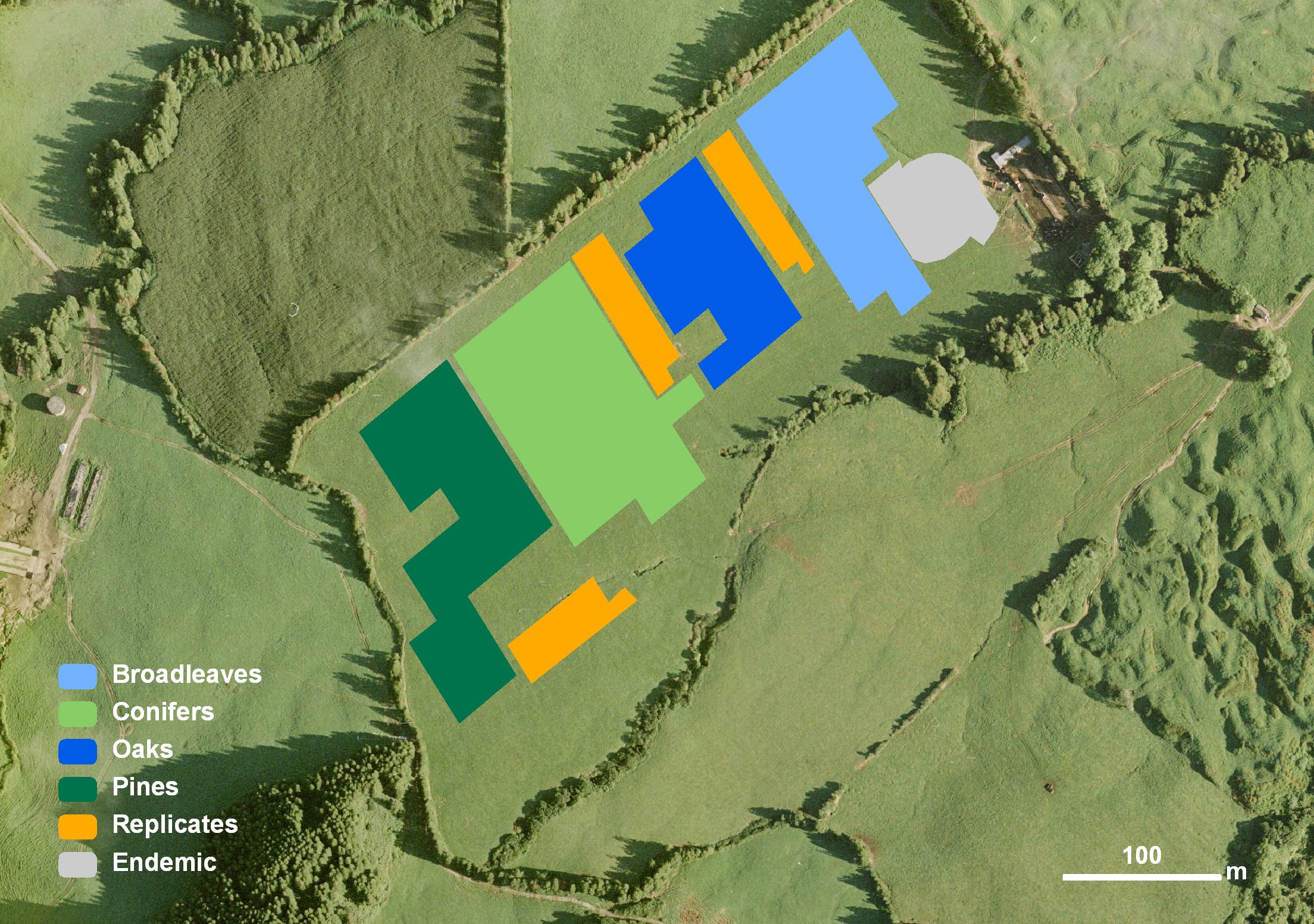Region: Azores
Country: Portugal
Website: http://furnas.citi.pt/index.php?ambiente=spracores
Partner in charge of the site: SPRAZORES
Responsible name: Silvia Jorge
Site characteristics
Altitude (m): 515Topography: low slope
Orientation:
Slope (%): 0.0
Hydrology: medium drainage
South containment: 0
Soil type:
Parent rock:
PH: 5.7
Climate
Average temperature (°C): 12.5Average precipitation (mm): 2400
Reference period for climatic data: 1976-2013

 copyrigth IEFC network
copyrigth IEFC network